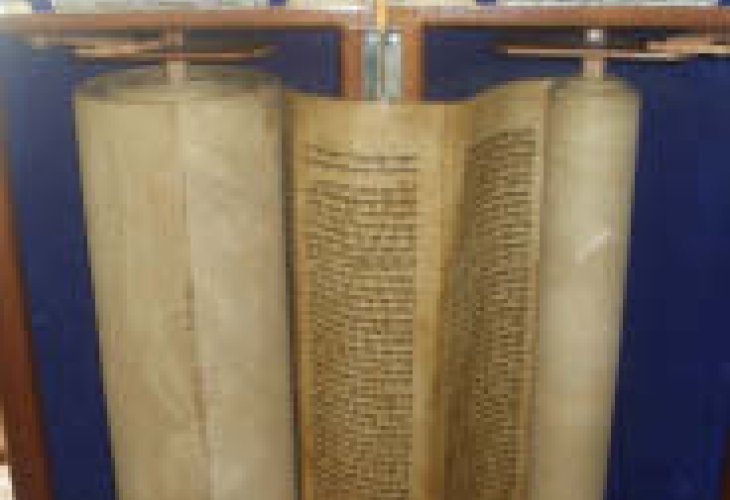Personal Stories
Rescuing a Torah: How One Scroll Escaped Iraq
With help from U.S. soldiers, Dr. Nissan Sharifi brought an ancient Torah scroll from Baghdad to safety in a Netanya synagogue
- Dudu Cohen
- |Updated

Last Tuesday, something extraordinary happened at the Be’er Chana synagogue in the Poleg neighborhood of Netanya. A Torah scroll was brought into the shul, not unusual on its own but this wasn’t just any Torah scroll. It was ancient, sacred, and carried a story as powerful as the scroll itself.
This Torah scroll had just made a secret journey from Iraq, a land once home to a vibrant Jewish community. With the help of the U.S. Army, the scroll was quietly brought to Israel, just before American forces are scheduled to leave Iraq. There is deep concern that once they go, the few Jewish holy items left behind could be destroyed by those seeking revenge, especially with the ongoing conflict and instability between Iraq’s different factions.
This scroll may very well have been used by some of the greatest Torah scholars of Baghdad. It is believed that Rabbi Abdullah (Ovadia) Somekh and his famous student, Rabbi Yosef Chaim known as the Ben Ish Chai, once read from this very scroll. These Torah giants learned at the Beit Zalka Yeshiva, one of Baghdad’s most respected centers of Torah learning. The scroll also survived a devastating fire in 1937, which destroyed many other sacred items. Its survival is nothing short of a miracle.
So how did this treasure make it all the way to Israel?
The man behind the mission is Dr. Nissan Sharifi, a respected attorney and public figure in Netanya. He is also the chairman of the Be’er Chana synagogue, which is named in memory of his mother, Chana Sharifi, who was born in Baghdad. Years ago, Dr. Sharifi represented several American soldiers who had made aliyah (immigrated to Israel) but were still called to U.S. military reserve duty because they hadn’t given up their American citizenship. Through those connections, Jewish-American soldiers in Iraq began sharing stories with him.
“At some point, I received information from these soldiers about ancient Jewish texts and Torah scrolls in Baghdad,” he recalls. “I decided to act. The goal was to rescue the oldest Torah scroll in Iraq, which is said to be the second-oldest kosher Torah scroll in the world. The oldest is in Safed, believed to be 500 years old, and written by Rabbi Yitzchak Abouhav.”
Was the Jewish community in Baghdad willing to give it up?
“There are only seven or eight elderly Jews left in Baghdad,” Dr. Sharifi explains. “Jewish soldiers told me that during the last Yom Kippur, they had to pray with these elderly Jews just to complete a minyan, a group of ten Jewish men required for public prayer.”
These last Jews in Baghdad live in fear, especially as the U.S. prepares to withdraw. “They’re worried about being attacked, and they’re especially afraid that the synagogues and holy books will be destroyed,” says Dr. Sharifi. “There are still thousands of Jewish books, ancient manuscripts, prayer books, and dozens of Torah scrolls left there.”
Is there a plan to rescue the others?
“It’s very difficult. Iraq has strict antiquities laws, similar to those in Israel, that forbid removing ancient artifacts from the country. These Torah scrolls fall under that category.”
So how did you manage to bring this one out?
“I can’t give too many details,” he says carefully. “But the Torah scroll was smuggled out of Iraq without its case. Only the parchment itself, the gevil was brought out, and it came through a third country before arriving in Israel.”
This week, the scroll was joyfully carried into the Be’er Chana synagogue in a festive procession. After all it had been through, it was finally given a safe and honored home. The scroll was examined using a computerized checking system, and after just a few minor corrections, it was declared kosher for public Torah reading.
It will now be used in the synagogue’s regular Torah reading cycle, an incredible return to purpose for something so ancient and sacred.
“In a few months, the U.S. will leave Iraq, and only a small diplomatic team will remain,” Dr. Sharifi says. “I hope that before then, we’ll be able to rescue more of these priceless Jewish treasures.”

